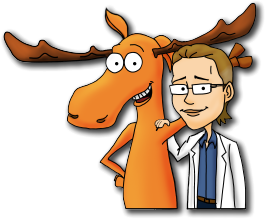We all know that anxiety is one of the biggest mental health problems of our times.
Whether you suffer from a full-blown anxiety disorder or just have those all too familiar feelings of racing heart, dry mouth and sweating, anxiety can seriously impact on our lives.
For many people, an anti-depressant medication or an anti-anxiety drug may be suggested together with some form of talking therapy.
However, there are plenty of self-help methods that have been scientifically proven to help ease the symptoms of anxiety.
From taking exercise regularly, (which does take a bit of effort) to simply pouring yourself a nice cup of herbal tea, have a look at our top natural remedies for anxiety:-
#1 Natural Remedies for Anxiety: Exercise
I hate to put exercise right up here at number 1 because there is no getting away from it. Firstly numerous studies have shown that exercise lowers both anxiety levels and in turn, anxiety symptoms. In addition, exercise also helps with depression and relieves muscle tension.
However, within the clinical studies, it appears that there is not only one causal mechanism that explains why exercise reduces stress and anxiety, but it is probably a combination of both physical and psychological elements.
The success of regular exercise on reducing the harmful consequences of stress and anxiety are most clearly demonstrated in ‘subclinical’ cases. This means anxiety that has not yet escalated to a diagnosable anxiety disorder.
Another analysis that reviewed studies looking at the effects of physical activity on emotional states showed that the positive effects of exercise are proven in healthy patients and those with emotional disorders in both genders and all ages.
What type of exercise and for how long?
One research study has shown that the best exercise for anxiety is rhythmic, aerobic exercise that involves large groups of muscles, ideal for health and fitness of body and mind.
Some examples of this type of exercise include jogging, cycling, swimming and walking at low to moderate intensity.
Furthermore, you don’t need to be down the swimming pool or gym twenty-four hours a day to benefit. Clinical studies have shown that just 15 to 30 minutes a day three times a week is all that it takes.
You probably spend more time worrying than that per day! If you start gentle exercise, don’t expect immediate results. The chosen activity should last at least ten weeks to fully benefit and see those anxiety symptoms really decrease.
So, what are you waiting for? Choose an aerobic exercise that you enjoy and get busy!
#2 Natural Remedies for Anxiety: Mindfulness
Mindfulness has been shown in many clinical studies to be a very useful treatment intervention for anxiety, including those with known anxiety disorders.
The main principle of mindfulness is to teach people to focus all the thoughts and attention on the present moment during everyday life.
Firstly, this helps people who ruminate about the past or stress about the future to stay present and enjoy, or be engaged in the moment.
Mindfulness is a type of meditative technique, whereby you may typically focus your thoughts on your breath whilst letting other thoughts come and go and just accepting and observing them.
Secondly, by using this technique it helps people to learn that thoughts, especially anxious thoughts, are not the whole person, they are simply thoughts that can be changed and directed.
Show us the Evidence for Mindfulness, Doc.
#3 Natural Remedies for Anxiety: Herbal Teas
i) Chamomile Tea
Ditch those beverages high in caffeine, such as tea, coffee and coke, which only serve to kick start an already overloaded nervous system, if you suffer from anxiety.
Swap these jittery beverages for a calming cup of chamomile tea, proven to be a natural remedy for anxiety and insomnia.
Chamomile is a mild tranquilliser and natural sedative, furthermore, it is useful in the treatment of both chronic anxiety and generalized anxiety disorder (GAD)
Recent clinical trials suggest that chamomile tea has ‘modest’ anti-anxiety effects on patients with mild to moderate GAD.
So why not make yourself a nice cup of chamomile tea and watch those worries fade away.
ii) Green Tea
If you have tried chamomile tea, and find that it makes you too drowsy during the day, then green tea is another healthy, herbal option.
Unlike, chamomile tea, green tea does contain a small amount of caffeine, but not as much as a cup of coffee so you still get a little buzz but without feeling too hyper or jittery.
A Japanese study that examined the effects of green tea on psychological stress symptoms in 42,093 people concluded that:-
Green tea consumption was inversely associated with psychological distress even after adjustment for possible confounding factors.
The reason for the anit-anxiety effects of green tea is that it increases the amino acid gaba gamma-aminobutyric acid (GABA). GABA is a neurotransmitter that inhibits messages to the brain and, thus, has a calming effect.
The other active ingredient in green tea, L-theanine, helps to lower both the heart rate and blood pressure, very good for panic attacks.
#4 Natural Remedies for Anxiety: Essential Oils and Aromatherapy
The use of essential oils and aromatherapy, for the treatment of anxiety and stress, has long been recognised as having beneficial effects.
One medical study looked at patients who received an aromatherapy massage once a week for 6 weeks.
The participants’ level of anxiety and depression were assessed using the Hospital Anxiety and Depression Scale.
After the aromatherapy massage six out of eight patients showed marked improvements in their symptoms of both anxiety and depression.
#5 Natural Remedies for Anxiety: Natural Herbs and Supplements
There are many alternative therapies for anxiety disorders, such as herbal medicine, that are natural and in addition, have fewer side effects than the prescribed, traditional anti-anxiety medication.
A 2010 meta-analysis examined five complementary therapies and involved 2,619 participants over 21 separate studies.
This study concluded that herbal remedy for the treatment of anxiety can be very effective.
Furthermore, ‘strong evidence’ exists for extracts of passion flower, valerian root and kava root as effective natural treatments for anxiety.
St John Wort, however, had insufficient evidence to date according to this study. Although some medical studies have shown that St John Wort is useful in the treatment of depression, and many patients swear by this natural herb, scientific evidence is sketchy.
Questions and Answers
I have suffered from anxiety, as part of my obsessive-compulsive disorder for many years now. I am interested in natural treatment combined with some scientific research. Any ideas?
I have used Saint John Wort for many years for my depression and anxiety and it seems to work well. However, medical research does not support this fact. Do you think it is the ‘placebo effect’?
The main active ingredients in Saint John’s Wort are hypericin and hyperforin. These two ingredients, particularly hyperforin, are thought to improve mood.
There is scientific evidence that shows that Saint John Wort is more effective than placebo for short-term of mild to moderate depression.
However, this anxiety remedy does interact with other drugs and has side effects. In conclusion, more testing of dosage and side effects in sound clinical trials is necessary.
What other measures can you take to help treat anxiety naturally?
Recent Anxiety Posts
- Full Index of ALL our Anxiety Posts
- The Anxiety Diet: Top Foods to Eat to STOP Anxiety
- How to Reduce Anxiety: TOP 4 Foods and Drinks to Avoid
- Post-Traumatic Stress Disorder (PTSD) Everything that you need to know about post-traumatic stress disorder. SO much more to this disorder than most people would think.
- Anxiety Attack: It can be very distressing to suffer from a true panic attack. Find out all the classic symptoms, causes and treatment here with Moose and Doc.
- Social Anxiety Disorder: Does speaking to people or attending the office party fill you with dread and panic? Are you just shy or is it something more?
- Probiotics for Anxiety: Is a healthy gut key to a healthy mind? All the very latest research
Other Articles on Halls.md
- Full Index of ALL our Weight Loss Posts
- Index of Diet for Disease Posts
- Index of ALL our Articles on Diets
- Full Index of ALL our posts on Body Mass Index, Ideal Weight and Calculators
References
- Salmon P (2001) Effects of physical exercise on anxiety, depression, and sensitivity to stress: a unifying theory. Clin Psychol Rev. 2001 Feb;21(1):33-61 (Retrieved December 19th 2016) https://www.ncbi.nlm.nih.gov/pubmed/11148895
- Hofmann SG, Sawyer AT, Witt AA, Oh D. (2010) The Effect of Mindfulness-Based Therapy on Anxiety and Depression: A Meta-Analytic Review (Retrieved December 19th 2016) J Consult Clin Psychol. 2010 Apr; 78(2): 169–183. https://www.ncbi.nlm.nih.gov/pmc/articles/PMC2848393/


